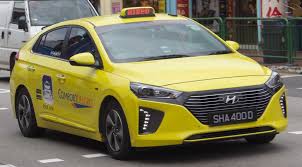As a result of a post-pandemic recovery that has increased the cost of the city-state’s vehicle quota system to all-time high; a buyer must now bid for a certificate that costs $106,000, the equivalent of four Toyota Camry Hybrids in the United States, in order to own a car in Singapore.
A 10-year “certificate of entitlement” (COE) system was implemented in Singapore in 1990 to regulate the number of automobiles in the tiny nation, which has a population of 5.9 million and can be traversed in under an hour.
With the COE for a large automobile more than quadrupling from 2020 pricing to a record S$146,002 ($106,376.68) on Wednesday, the quota, granted through a bidding process, has made it the most expensive city in the world to buy a car.
A new basic Toyota Camry Hybrid presently costs S$251,388 ($183,000) in Singapore, compared to $28,855 in the United States, after COE, registration fees, and taxes. In Singapore, a small apartment with government assistance costs about S$125,000.
A post-COVID boost in economic activity has led to more car purchases, although the total number of vehicles on the road is capped at roughly 950,000. In 2020, when fewer people in Singapore were driving, the cost of COEs plummeted to about S$30,000. Depending on how many older vehicles are deregistered, new COEs may be made available.
Most middle-class Singaporeans can no longer afford vehicles due to the growing price, which undermines what sociologist Tan Ern Ser called the “Singapore Dream” of upward social mobility—having money, a condo, and a car.
Singapore’s median yearly household income is S$121,188.
Singaporeans have been hard hit by ongoing inflation and a faltering economy, and some are trying to turn a profit by selling the automobiles they purchased at low COE pricing.
One must settle for a “good enough life” rather than striving for the “good life,” according to Tan.
Jason Guan, a 40-year-old insurance professional and father of two, claimed that he paid S$65,000 for his first vehicle, a Toyota Rush, in 2008, which included the cost of the COE.
Guan no longer has a car and instead concentrates on the numerous benefits that Singapore provides for his family.
“Singapore still has an excellent and stable educational system, so as a family man, it doesn’t really affect me. It remains one of the safest nations in terms of security, he said.

















